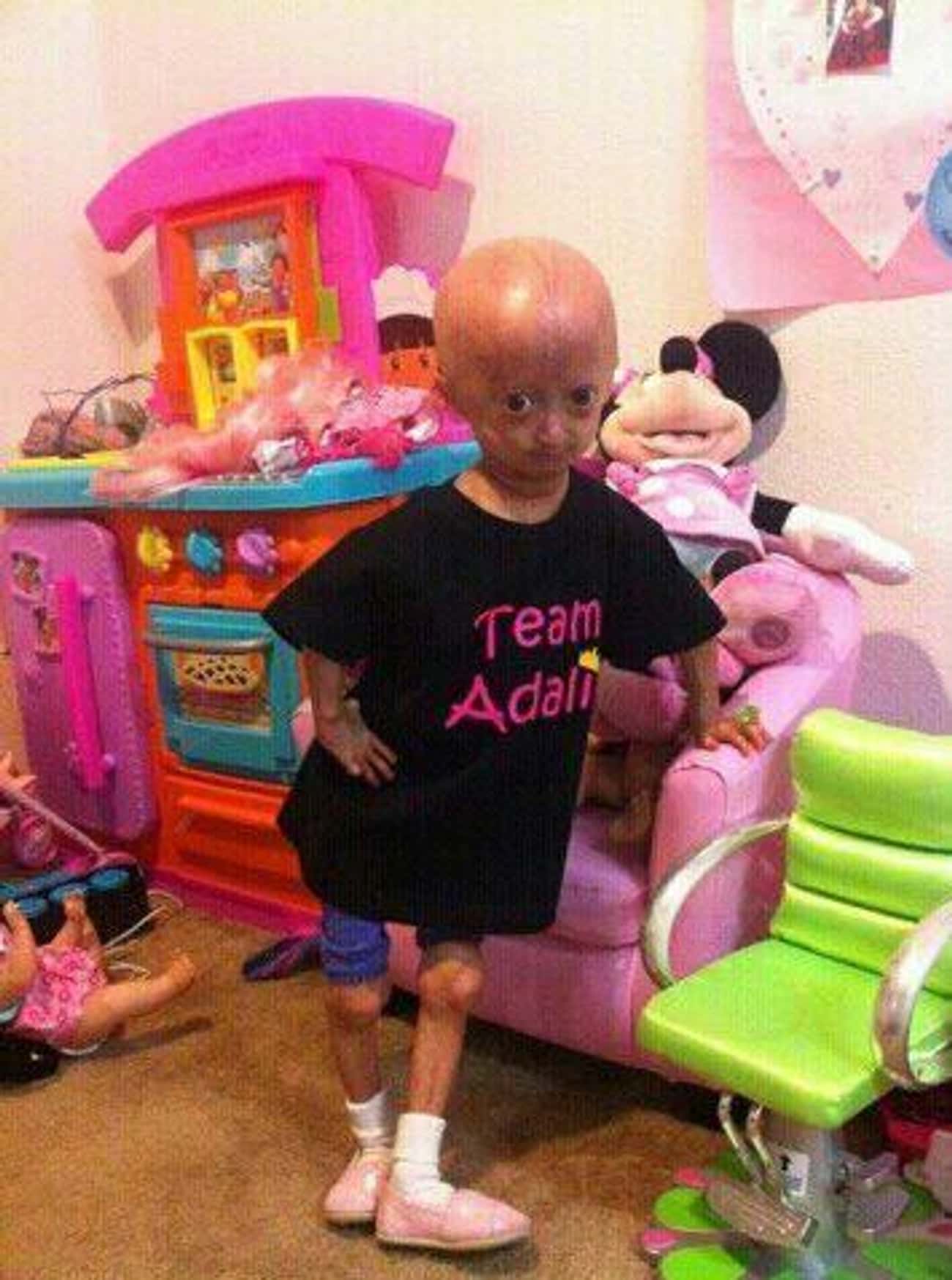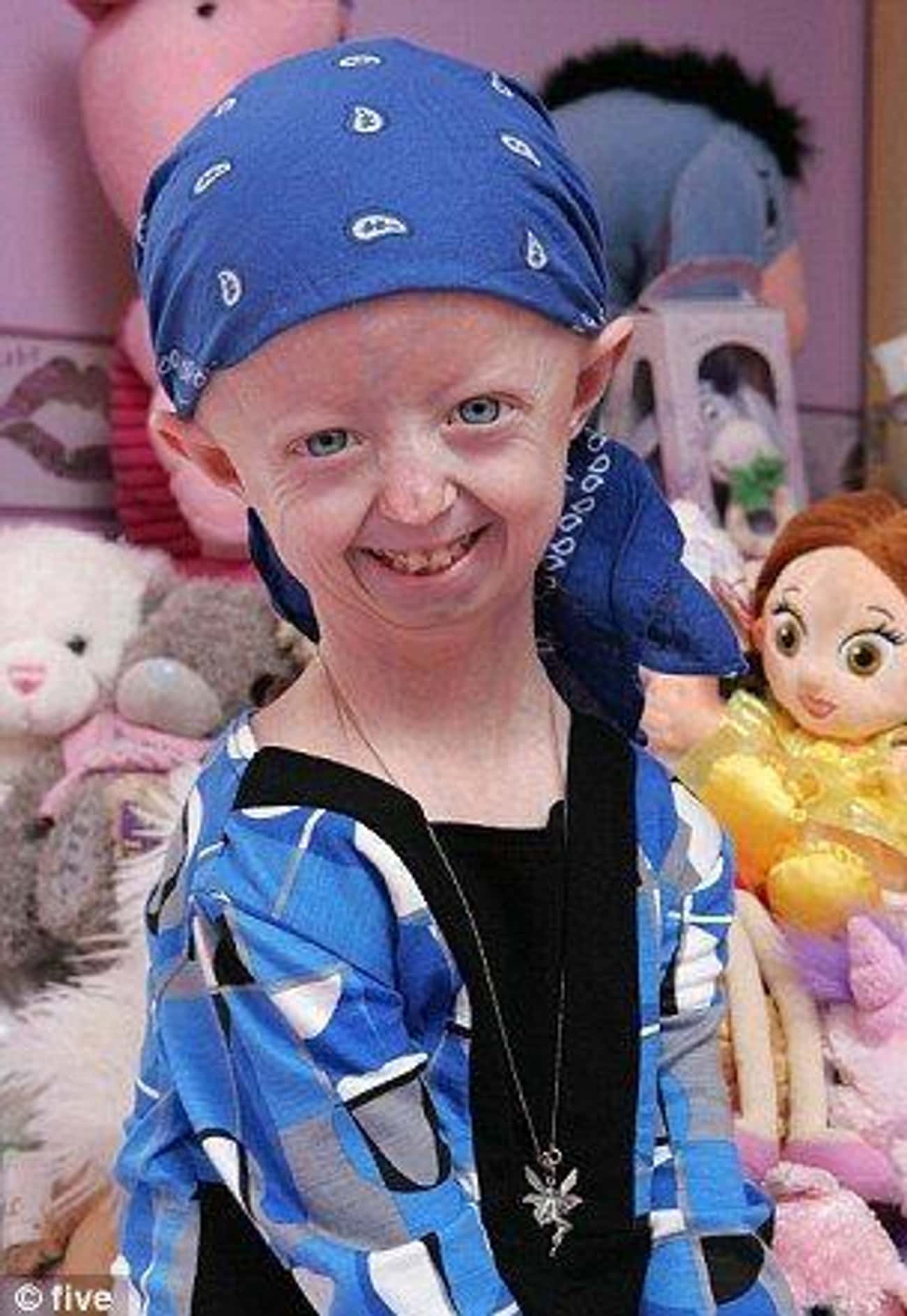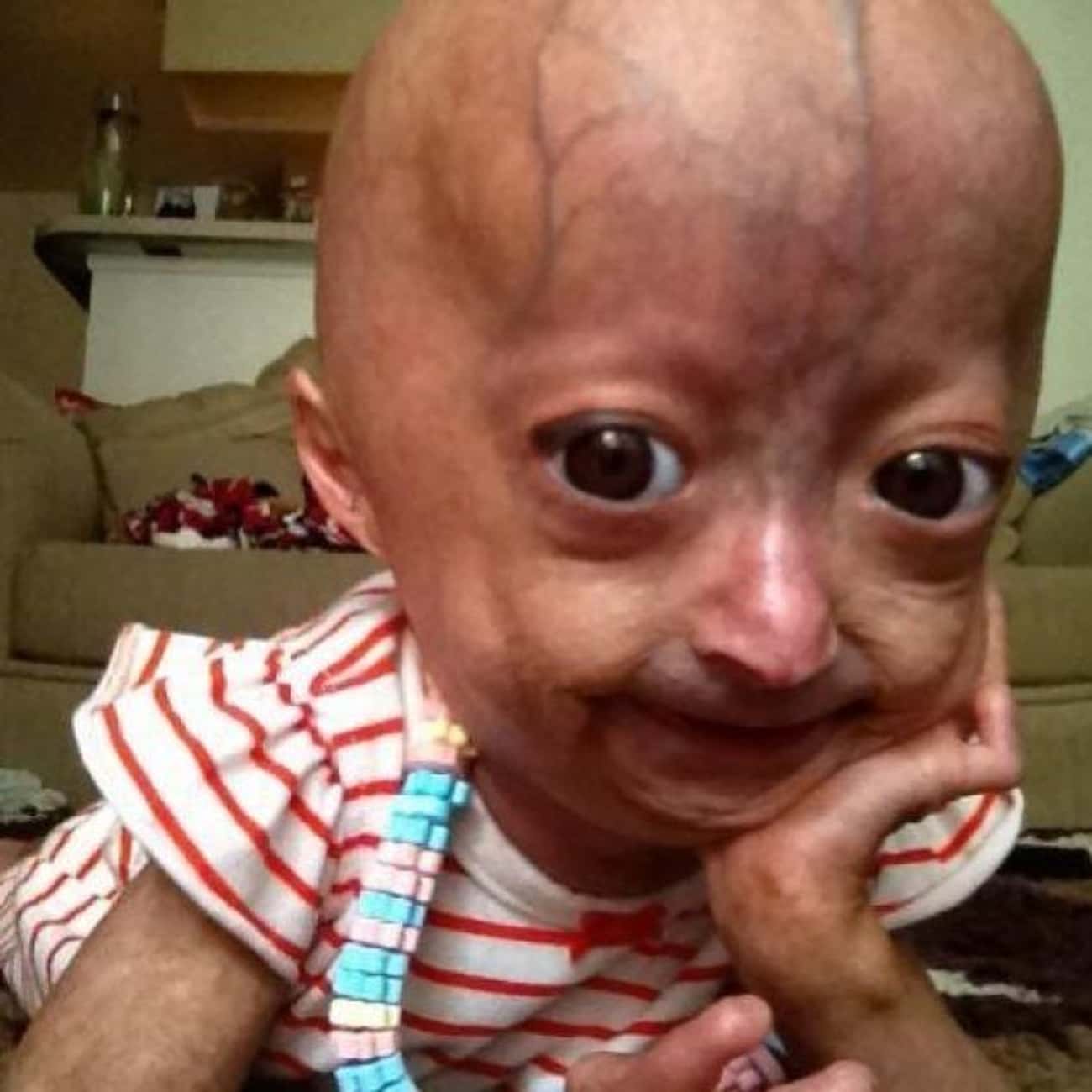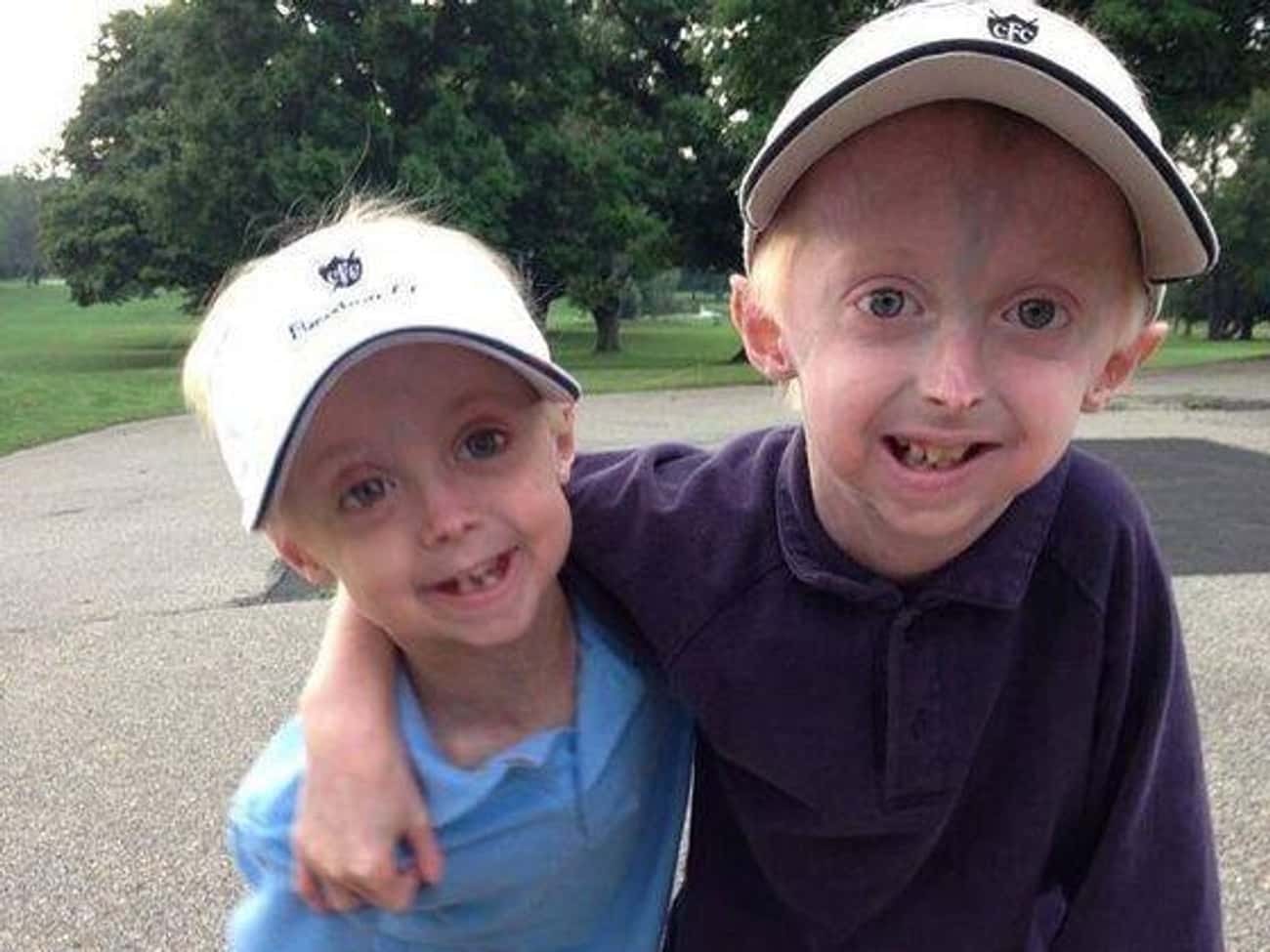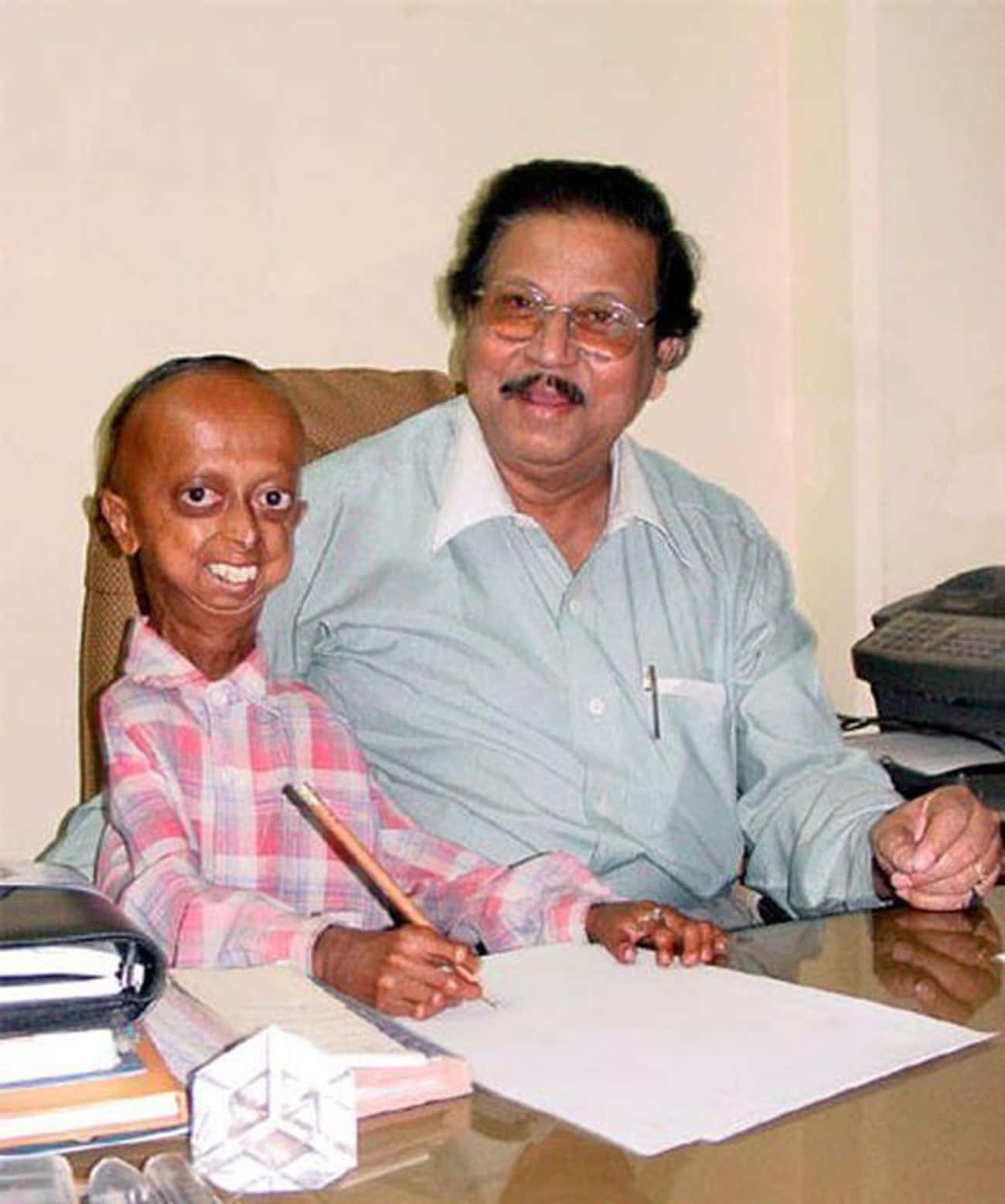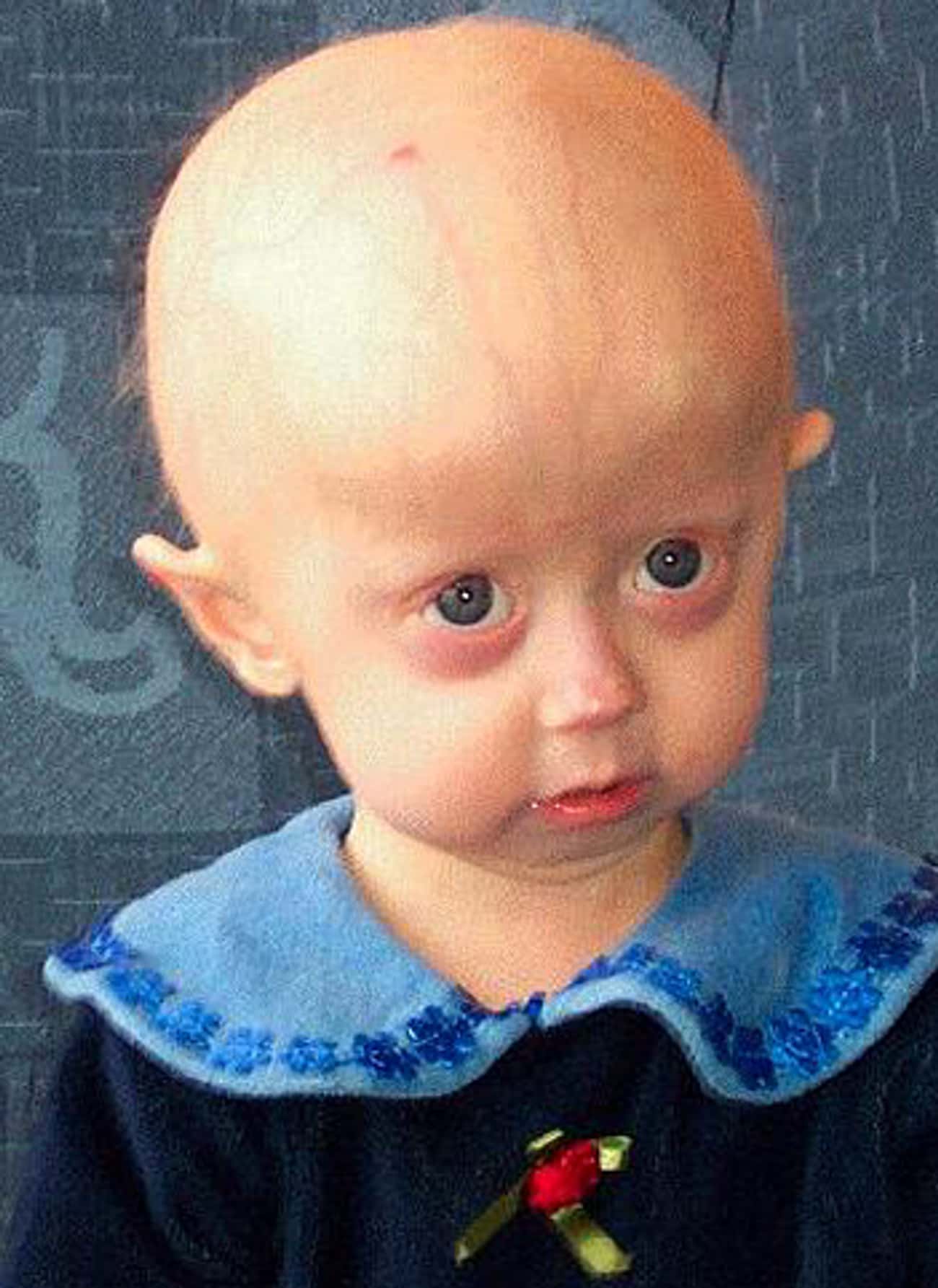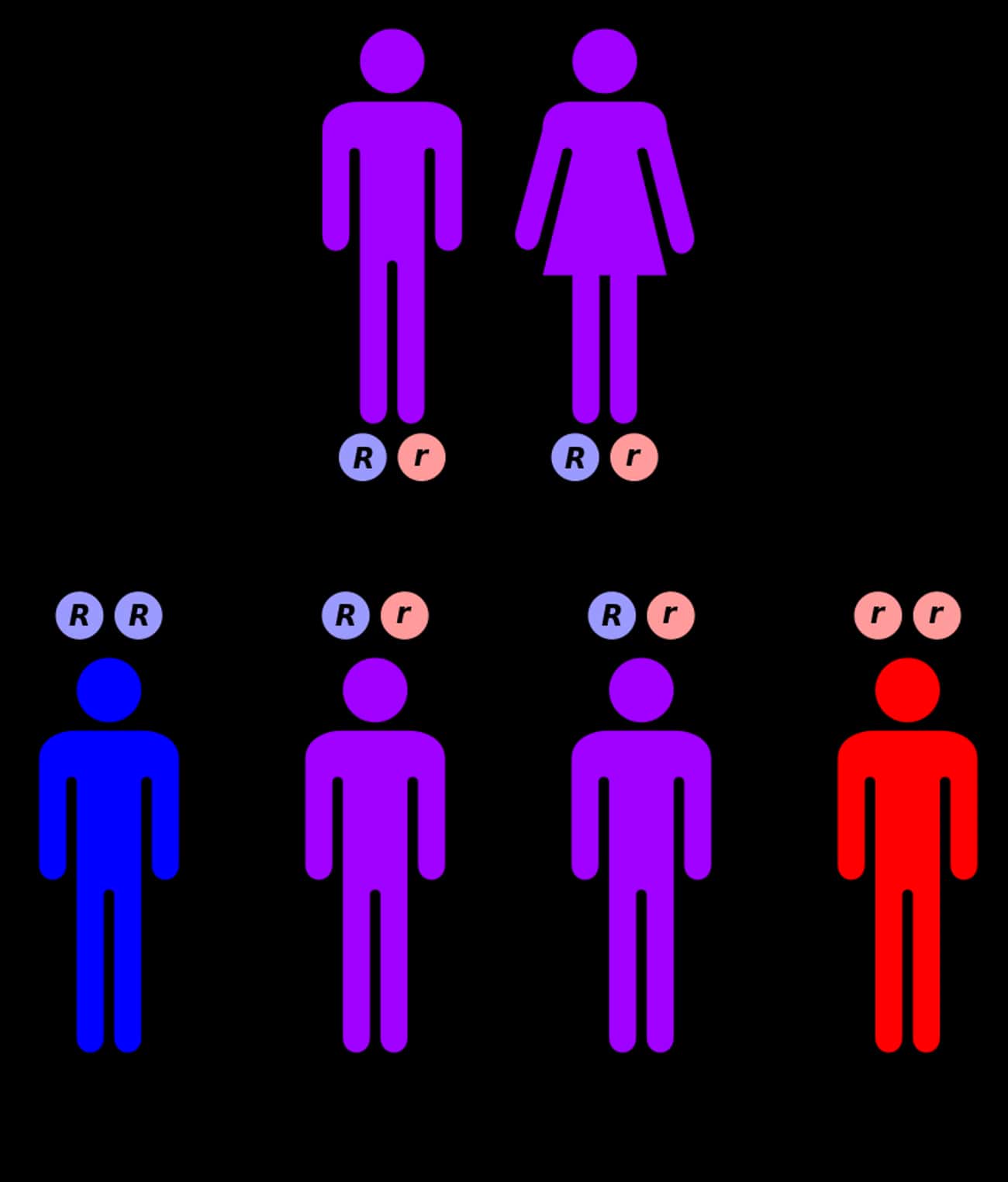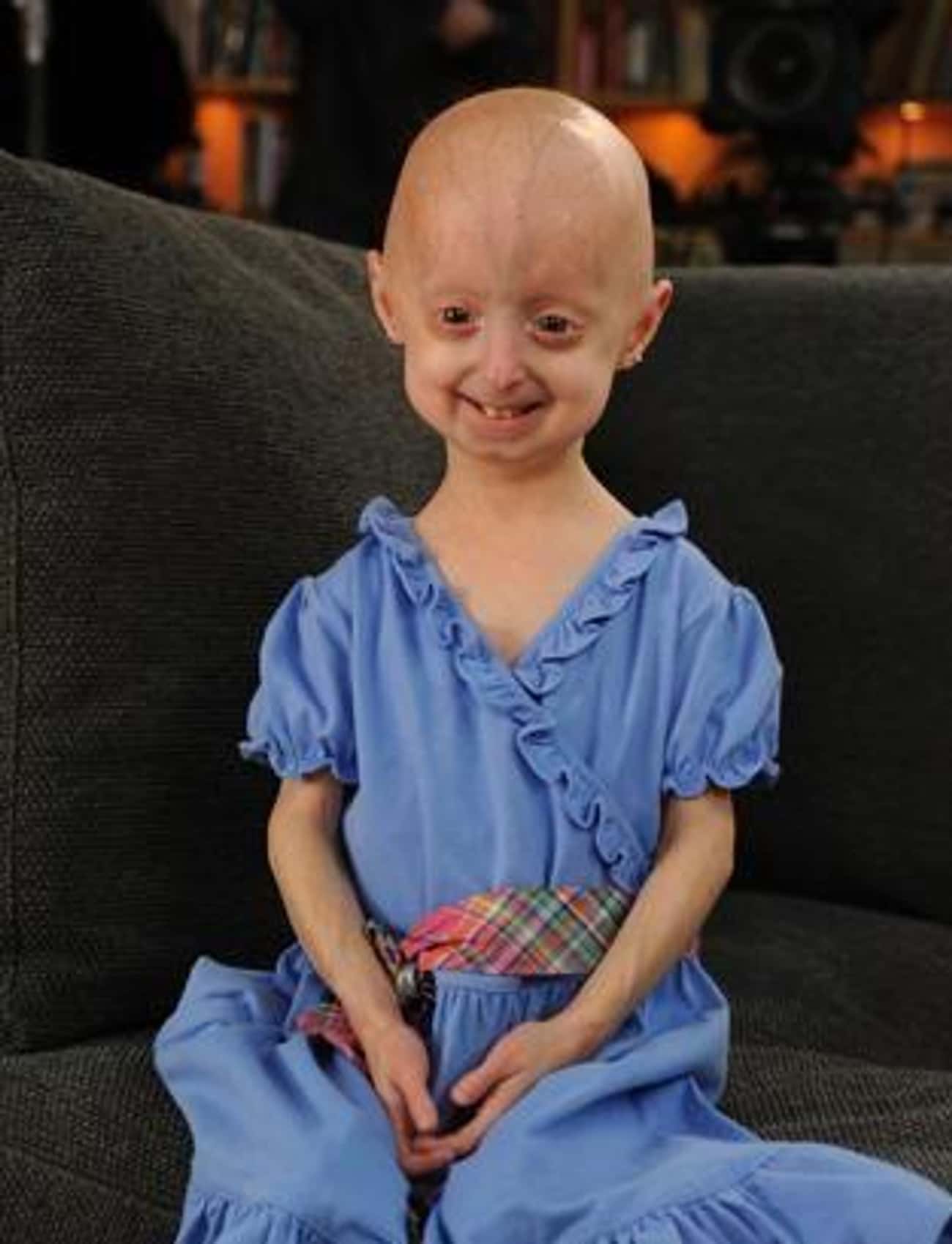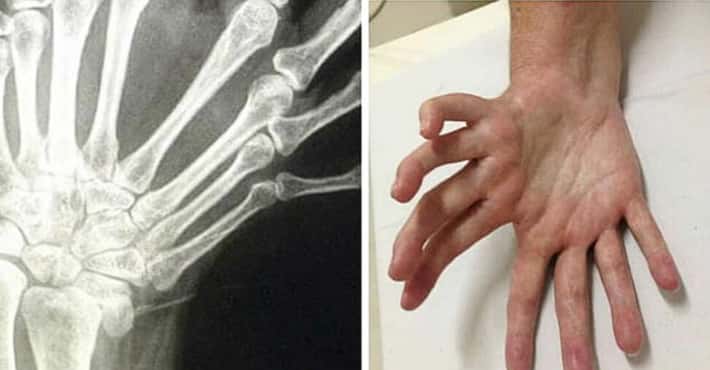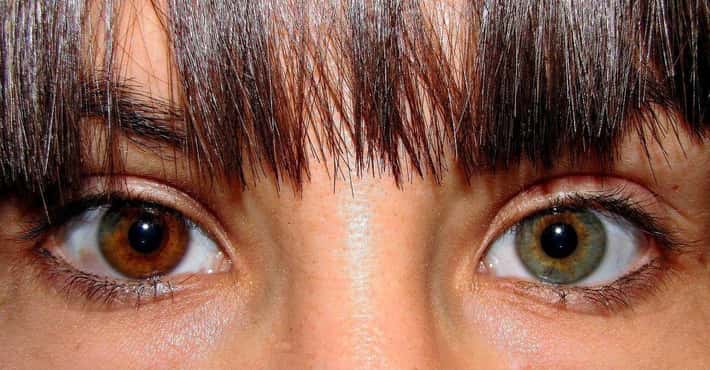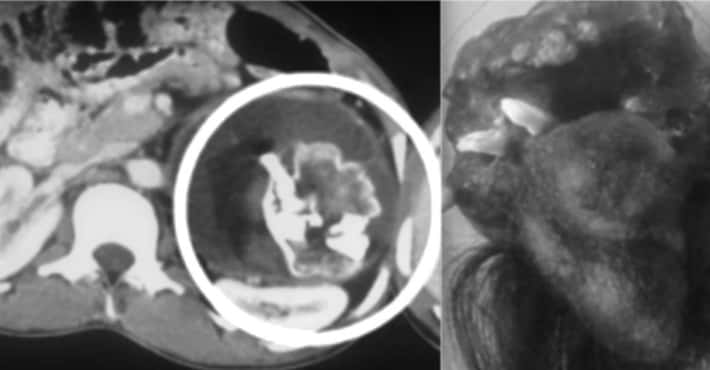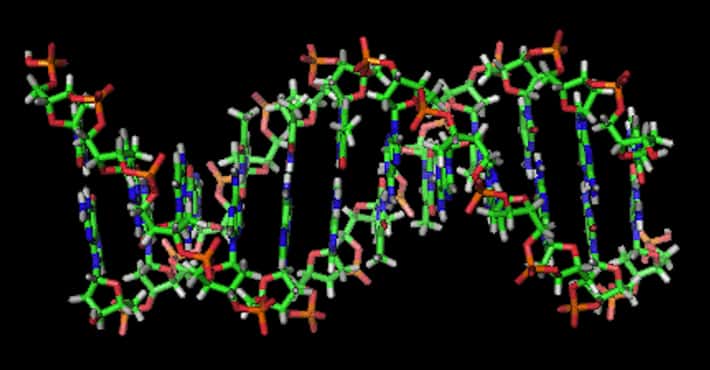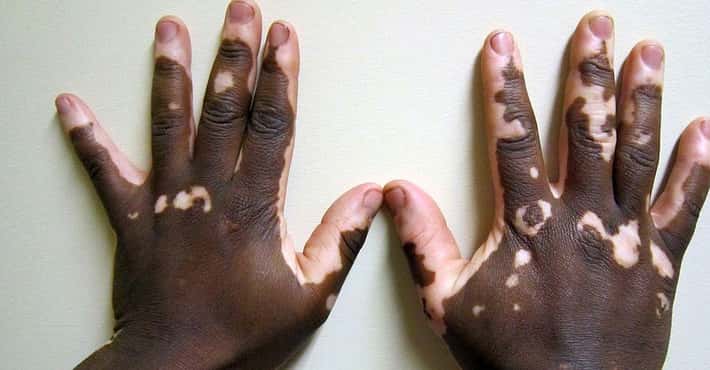What You Need To Know About Progeria, The Disease That Rapidly Ages Young Kids
It's Not An Inherited Condition
Video: YouTube
Because progeria is a genetic condition, many people assume that it's inherited. Actually, the gene mutation involved in progeria usually happens spontaneously. Progeria is a "sporadic autosomal dominant" mutation, which means it's new to the family, and that only one copy of the mutation is required for the condition to arise.
Parents who have never had a child with progeria have a one in 20 million chance of having a child with the syndrome. However, parents who already have one child with progeria have a 2 to 3% chance of having another. That increase in the odds is due to something called mosaicism. Essentially, parents now have the genetic mutation for progeria in some of their cells. Parents in this situation can get prenatal testing to detect the genetic change that causes progeria.
The Symptoms Mimic The Aging Process
Photo: PinterestProgeria is colloquially known as a rapid aging disease because the typical symptoms strongly resemble the aging process. These symptoms include decreased growth, loss of body fat and hair, wrinkled skin, stiff joints, hip dislocation, and heart disease. However, not all symptoms of the aging process are present in progeria patients. They don't generally get cancers, Alzheimer's, or cataracts at a higher rate than the general population. Their maturity levels are also consistent with their chronological age. In other words, these are still kids.
What exactly causes this extreme effect? Progeria is thought to be caused by a genetic mutation that impacts protein development and weakens cells, leading to an accelerated aging process.
The Biggest Risk Is Progressive Heart Disease
Photo: PinterestPeople with progeria are at high risk for strokes, high blood pressure, and heart failure - all conditions associated with the aging process. Heart disease presents the biggest risk for progeria patients, and cardiovascular issues are frequently the cause of death for them.
Life Expectancy For Progeria Patients Is Low
Photo: PinterestWhile it is possible for progeria patients to live into their 20s, the average age of passing is about 13 years old. Typically, death occurs because of a heart attack or a stroke. As research continues, this low life expectancy will hopefully go up.
It Has No Impact On Intelligence
Photo: PinterestProgeria has no impact on a person's intelligence or ability to learn. Children with progeria can attend school with the general population unless another condition is present that prevents this. Typically, a child with progeria will need accommodations, such as being allowed to rest when tired and eat when hungry as well as the use of a modified desk to account for small size.
If necessary accommodations are provide, there is no reason why a child with progeria cannot have a successful and positive experience in school.
It Impacts All Demographics Equally
Video: YouTube
There is no demographic that is disproportionately impacted by progeria. Children of all ethnicities, genders, and class backgrounds can develop the disorder. However, like with all medical conditions, access to appropriate treatment, and therefore, the outcome of disease's progression, can be affected by those factors.
It's Not Contagious
Photo: PinterestProgeria is a genetic condition, not a viral, bacterial, or fungal infection. This means you cannot catch progeria from a person with the syndrome. What's more, individuals with progeria typically have normal immune systems, so no unusual precautions need to be taken to prevent the spread of disease.
There Are Treatments That Can Help (But No Cure Yet)
Photo: PixabayAs of 2019, there is no cure for progeria. However, this doesn't mean that there's no way to alleviate suffering. In 2012, the first treatment for progeria, a drug called lonafarnib, was clinically tested. Children taking this drug often showed improved bone structure and gained weight.
Besides medication, physical and occupational therapy can address progeria symptoms as well. Patients can also be helped through treatments that control-related conditions such as heart disease and dental problems, and by eating nutritious, high-calorie foods.
Not All Doctors Know How To Treat It
Photo: PixabayBecause progeria is so rare, many doctors don't have a good understanding of how to treat it. As a result, it may take some time to find a doctor who can not only give an appropriate diagnosis but can also provide appropriate care. This can be a frustrating experience for everyone involved.
If you suspect that your child might have progeria, you can contact the Progeria Research Foundation and ask about their Diagnostic Testing Program.
Social Stigmas Can Be A Huge Problem
One of the most daunting issues that progeria patients face is stigmas. According to one parent: "The most difficult thing for us at first was not the medical issues. It was the psychological and emotional challenges we feared that our child would have to face."
Other parents described people staring at their child and asking invasive, inappropriate questions. This can be deeply upsetting for progeria patients and their families. For this reason, spreading awareness about the misunderstood condition is an important goal for many experts.
People With Progeria Can Have Children, But It's Extremely Rare
Photo: Mikael Häggström / Wikimedia Commons / CC BY 2.5One serious concern about progeria is whether or not those who have it will be able to have children. While there is one documented case of a 23-year-old Spanish woman with progeria who gave birth, it is uncommon for this to happen. There are several reasons for this.
First of all, one of the common symptoms is incomplete sexual maturity, which is a requirement for fertility. Second of all, people with progeria often have medical issues, such as hypertension, progressive heart disease, and osteoporosis, that may make pregnancy and childbirth dangerous. Finally, people with progeria often do not survive long enough for parenthood to be a realistic possibility.
There Are Similar Syndromes
Photo: Wikimedia CommonsProgeria isn't the only accelerated aging disease. There are several conditions that can be described as progeroid syndromes, including Werner syndrome and Cockayne syndrome. These conditions have a variety of different causes, ranging from defects in DNA repair to genetic errors. Their common feature is accelerated aging.
It Wasn't Researched Until The '90s
Photo: PinterestProgeria is an extremely rare condition, affecting only about one per every 8 million newborns worldwide. Since 1886, when the condition was first described, scientific literature has noted at least 130 cases. For this reason, not much research was done on progeria until the 1990s.
People With Progeria Can Lead Happy And Fulfilling Lives
Video: YouTube
While progeria can significantly shorten a person's lifespan, this doesn't mean that they can't have happy and fulfilling lives. Living with progeria can present serious challenges, but progeria patients can attend school, have jobs, form and maintain deep relationships, volunteer, engage in meaningful hobbies, and more.
Sam Berns, who gave a TED Talk on the subject of happiness, describes a life that involves a tight-knit group of friends, involvement in the school band, and a strong sense of positivity about himself and his future. Berns passed in 2014 at the age of 17.


